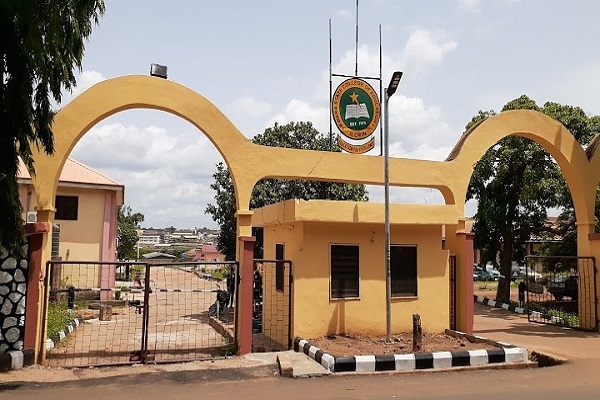Some investors have clashed with the provost of the Kwara State College of Education over the remodelling of about 1,000 bed-space hostels.
According to a report, the investors accused the college provost of breaching the terms of the agreement.
The report unveiled that the investors have appealed to Governor Abdulrahman Abdulrazaq to intervene to save their N150 million investment from going down the drain.
The spokesperson of the concerned investors, Oladeji Olaniyi, said they entered into a Memorandum of Understanding (MoU) with the management of the institution on the operation of the hostels in 2019 on a public-private partnership arrangement.
He said the school management reneged in the agreement while lamenting that the loans taken from financial institutions and corporate personalities to execute the contract had accumulated interest.
He said, “The agreement we had with the college was for a period of 15 years, while the college will make the use of the hostel compulsory for the students.
“The share capital was that for the first four years all the returns from the hostels will come to us; the investors, while for the remaining years, the returns will be shared in 70:30 ratio: 70 per cent to us while the college will take 30 per cent.
Read Also: 1,000 slum kids get educational support in Oyo, Kwara
“On a cumulative basis, our investment in the school runs into N150 million.
“Surprisingly, the college did not make the hostels compulsory for the students.
“By the end of the first session, what was realised by all the hostels is not up to seven per cent of what was expected as against our forecast of 100 per cent expectation respectively.
“This is way below what was the expected return on our investment. This is how our plight started.
“When we discovered that the college was not going to make the hostels accommodation compulsory for the students we started making moves.
“Among the step we took was to write letters to the Acting Provost and the Governing Board on several occasions pleading for the college to honour the terms of the MOU.
“In our letter dated February 4, 2022, we suggested three options for the College.
“The first option was for a reduction of the cost of per bed space from N40,000 to N30,000 subject to the amendment of the MOU to increase the duration of the contract from 15 years to 20 years and to make us entitled to 100 per cent remission of the hostel fees for six years instead of four years.
“The second option was for the college to subsidise the hostel for the students while the third option was for us to be paid off.
“Rather than consider our suggestions which appear to be the best, the college Board unilaterally reduced the hostel fees to N15,000 and yet did not make the hostel accommodation compulsory for the students.
“At this point, 20 years is not sufficient for us to make any return on our investment in the college’s hostels.
“So we had to resort to the last option which is to opt out. We have contacted the Governor of Kwara state to intervene in the matter and once and for all resolve this issue.
“At a point, we wrote a letter addressed to the governor through the Secretary to the State Government but nothing happened.
“Over N150 million has been invested in the hostels by us and we were betrayed by the college. Our financiers are after us. They keep calling every now and then.
“We keep getting letters of demand for loans which we took to finance this project and the college has no sympathy.”
The Acting Provost of the college, Dr Ahmed Ayinla, confirmed that he was aware of an MoU signed between the former provost of the college and some investors on the management of the hostels.
However, he said that the MoU was not properly done.
Ayinla said: “It was true that a group of investors signed a memorandum of understanding with the former Provost, but the normal procedure was not followed because both the governing Council of the College and the Ministry of Tertiary Education Education which is the supervisor of the college were not involved in the signing.
“Secondly, the MoU was full of errors. For example, the MoU was supposed to be in operation for 15 years but they increased the period to 25 years without the knowledge of the management.
“We pointed these to him but he refused to listen to us. We are aware that they had invested in the hostels and in order not to lose totally, we advised that he should make some corrections so that we can resolve the issue amicably but he didn’t want to reason with us.
“I will advise him to get the Governing Council and the Ministry of Tertiary Education involved so that the issue can be resolved amicably so that he would not lose the money already invested in the hostels”, the provost said.








